Japan crying out for LGBTQ+ rights ahead of G7 summit – but will its prime minister listen?
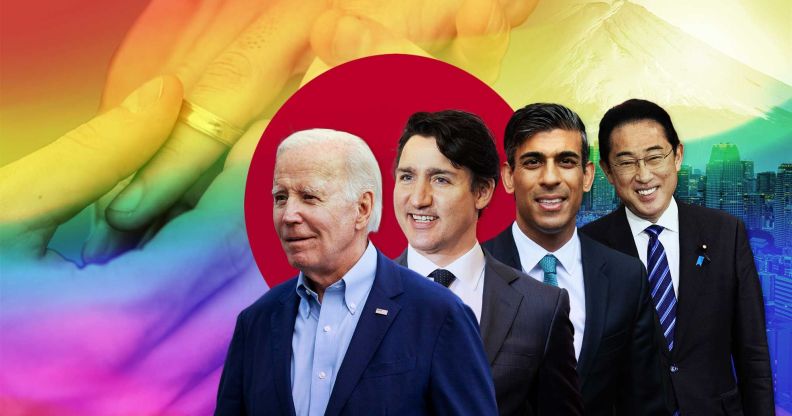
LGBTQ+ advocates have demanded Japan implement vital legislation protecting queer people from discrimination ahead of the G7 summit in May. (Getty)
Japan’s record on LGBTQ+ issues is under international scrutiny as it prepares to host the G7 summit.
A kaleidoscope of colour filled central Tokyo as thousands turned out for the annual Rainbow Pride parade on Sunday (23 April).
It’s the first time the march has been able to take place since 2019, and participants collectively called for Japan to take crucial steps toward equal rights for LGBTQ+ people.
Pressure is building on Japanese prime minister Fumio Kishida as he prepares to host the next Group of Seven (G7), which begins on 19 May in Hiroshima.
Japan is the only G7 nation that doesn’t allow same-sex weddings. Calls for a marriage equality bill, along with anti-discrimination and other legal protections for LGBTQ+ people, have increased since an aide to Kishida, Masayoshi Arai, remarked in February that he wouldn’t want to live next to queer and trans people, and that citizens would leave en masse Japan if same-sex marriage were allowed.
It triggered international public outrage, and the governing Liberal Democratic Party (LDP) began preparing legislation that would promote understanding of LGBTQ+ rights – but not mandate them.
Akira Nishiyama, deputy executive director at LGBTQ+ rights group The Japan Alliance for LGBT Legislation (J-ALL), tells PinkNews that the biggest issue the queer community faces in the country is the “absence of laws”.
Though Nishiyama says the Japanese government “needs to promote legislation” to “keep its promise to [the] international community”, she doesn’t know how likely it is that parliament will actually pass an anti-discrimination bill – although the intense focus brought by the G7 summit could help.
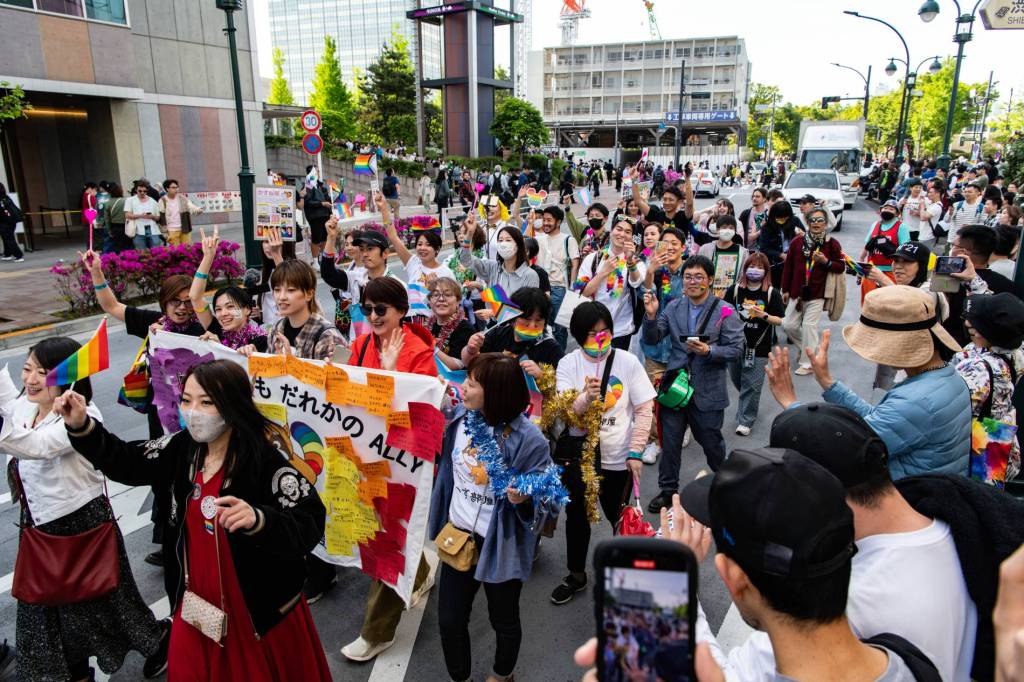
“This is the first time in the past several decades that many actors from business sector, labour sector and international community and countless others have raised their voices to support LGBTQ+ community in Japan,” Nishiyama says.
“Therefore, we hope that Japanese government will enact [an] anti-discrimination law this time.”
She describes how the Japanese LGBTQ+ community felt intense “disappointment” in 2021 when the National Diet, Japan’s parliament, failed to pass legislation that would protect LGBTQ+ people from discrimination based on sexual orientation.
But they didn’t give up the fight for their rights – and they don’t plan to now.
“Even if [the] Japanese government didn’t legislate [an] anti-discrimination law around [the] G7 summit, it will never disappoint us, but will make us stronger and united,” Nishiyama says.
“We never give up.”
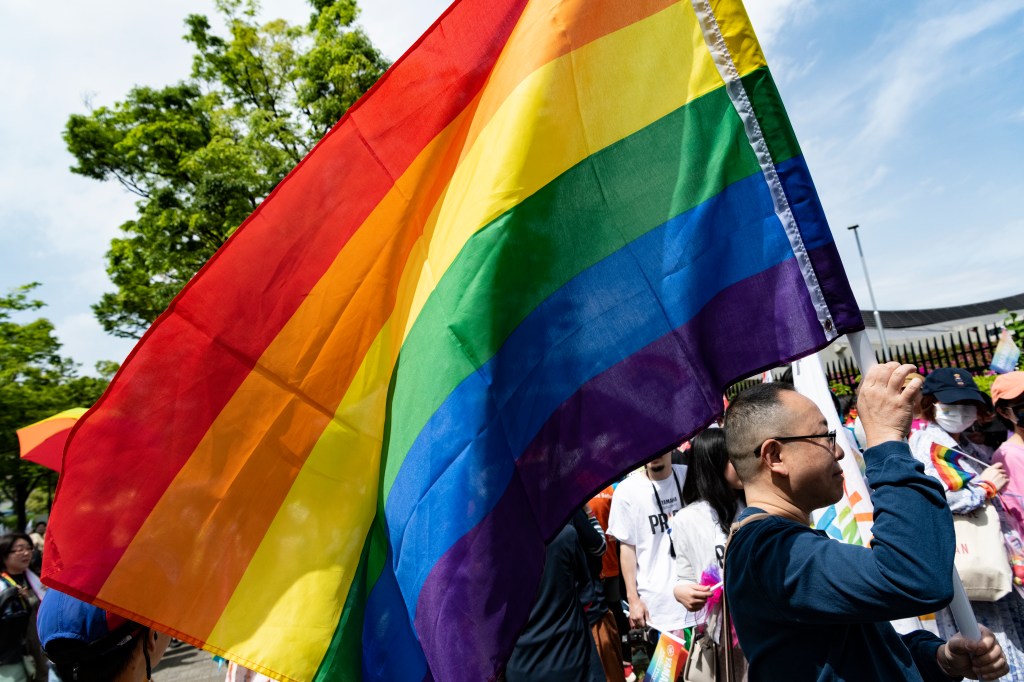
Nishiyama adds that Japan retains “inhumane requirements regarding legal gender recognition” – trans people must undergo surgery and be sterilised before they can change their gender marker.
This is despite a communique issued by G7 leaders in 2022, affirming their “full commitment to a sustained focus on realising equality between women and men as well as transgender and non-binary people”.
They also promised to ensure that “everyone – independent of their gender identity or expression or sexual orientation – has the same opportunities and is protected against discrimination and violence”.
And yet, Japan’s laws lag behind – though the country is considered relatively liberal among Asian nations, with same-sex relations legal since the 1880s.
Even if the government is slow to take up the fight for LGBTQ+ rights, societal attitudes towards the queer community – which have long been hostile – are changing.
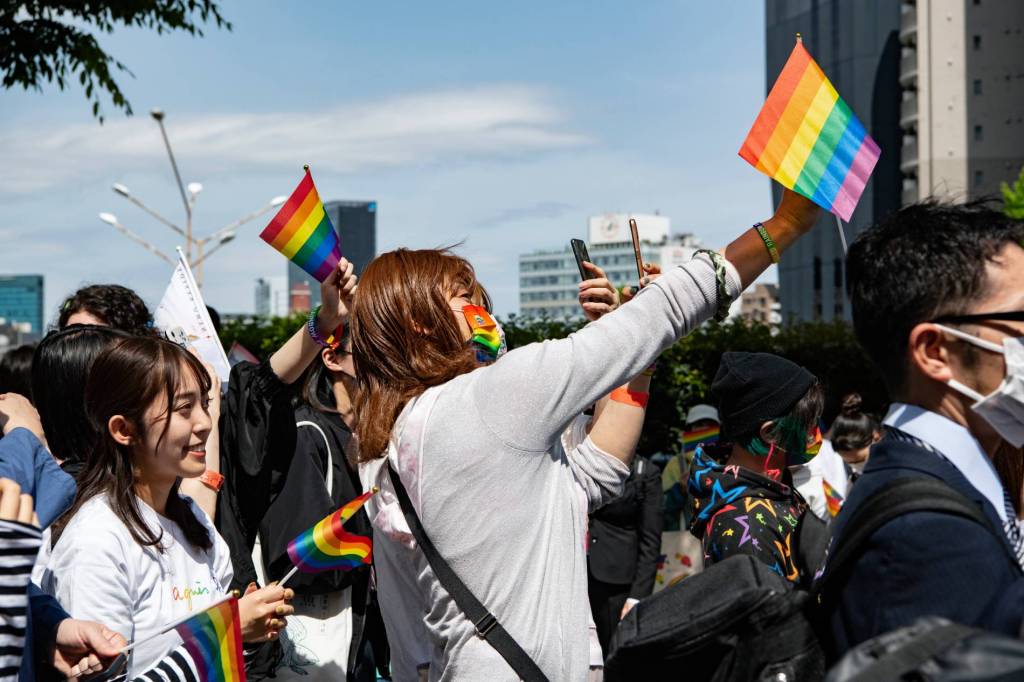
Approximately 64 per cent of respondents to recent a Kyodo News poll supported introducing laws to promote understanding of LGBTQ+ people, and a different survey by Asahi Newspaper showed a high level of support for the legalisation of same-sex marriage in Japan.
Nishiyama adds that ordinances prohibiting LGBTQ+ discrimination have been “introduced in around 60 municipalities and over 200 have instituted ‘partnership’ systems”.
“Furthermore, a nationwide opinion poll conducted by Kawaguchi Kazuya of Hiroshima Shūdō University showed that 87.7 per cent of respondents supported the enactment of laws and ordinances that prohibit bullying and discrimination towards sexual minorities,” Nishiyama says.
“You can clearly see that acceptance in the general public towards LGBTQ+ people is high and a growing number of municipal governments have been introducing legislation to protect people from discrimination and violence based on SOGI.”
There has been backlash against this movement from “religious right-wing groups, ultra-conservative politicians and trans-exclusionary radical feminists [TERF] groups” in Japan, Nishiyama says.
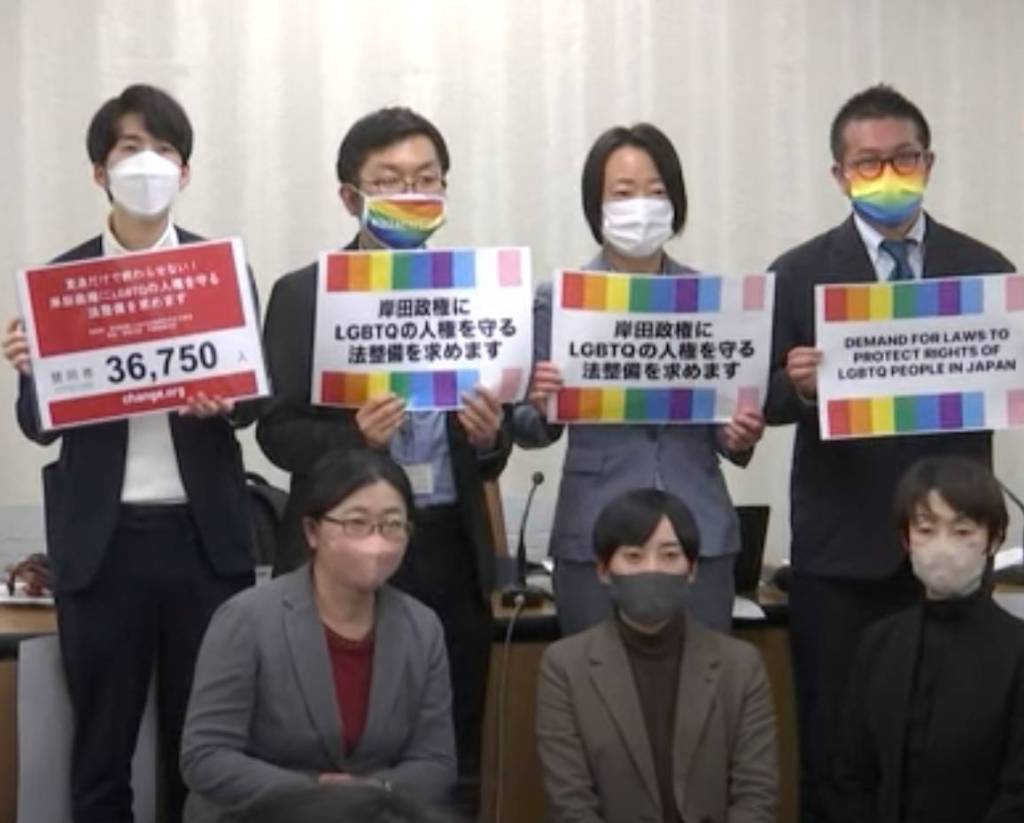
Mio Sugita, a right-wing LDP member, said in a magazine article in 2018 that members of the LGBTQ+ community were “unproductive” because they cannot have children. Sugita didn’t apologise for her anti-LGBTQ+ remarks until December 2022.
Veteran LDP lawmaker Katsuei Hirasawa faced widespread criticism for saying that “a nation would collapse” if everyone became LGBTQ+ back in 2019.
Last June, a pamphlet that claimed being LGBTQ+ is an “acquired psychological disorder or addiction” was distributed during a gathering of LDP lawmakers – a view shared by conservative religious and other groups that traditionally backed the political party.
LGBTQ+ advocates have also been fighting against false rumours and misinformation spread for years around trans people, especially trans women, in Japan.
Last month, ambassadors to Japan from the six other G7 countries wrote a joint letter to Kishida, demanding he follow through on his promise to finally protect the LGBTQ+ community.
“Japan can match its international advocacy for human rights with a domestic agenda that includes steps to protect its own LGBTQI+ communities, including enacting legal protections for its LGBTQI+ citizens,” the letter read.

